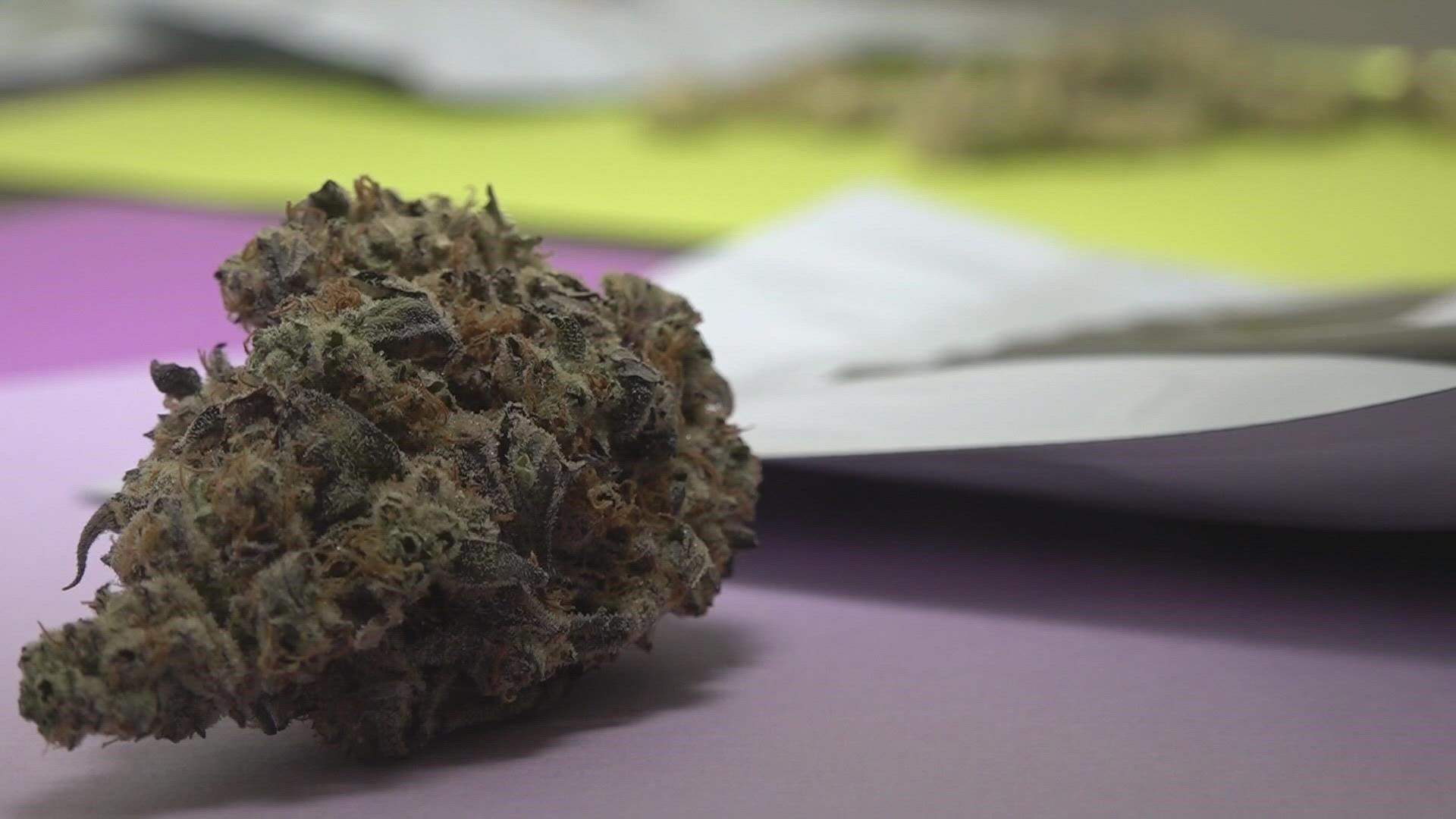Get Your Medical Marijuana Card Clinton MS Swiftly and Easily
Get Your Medical Marijuana Card Clinton MS Swiftly and Easily
Blog Article
Shedding Light on What Medical Marijuana Can Treat: an In-Depth Evaluation of Its Restorative Characteristics
In current years, there has actually been a growing passion in the restorative possibility of clinical cannabis. While unscientific evidence is plentiful, an extensive evaluation of the clinical data pertaining to the effectiveness of medical cannabis in dealing with these problems is required.
Chronic Pain Administration
Persistent pain management remains a critical facet of healthcare, demanding a thorough strategy for effective therapy. In recent times, clinical cannabis has arised as a possible therapeutic option for people experiencing persistent discomfort problems. The endocannabinoid system, which plays a vital role in pain inflection, has actually been targeted by cannabis-based treatments to reduce signs and symptoms and boost lifestyle for people.

In addition, medical marijuana uses an encouraging choice for individuals who experience excruciating side impacts from typical discomfort drugs. Its capability to resolve discomfort through a different mechanism makes it a useful enhancement to the toolbox of therapies offered for persistent discomfort management.
Epilepsy Therapy Possible
Medical marijuana has actually revealed appealing possibility in the therapy of epilepsy, providing an unique restorative technique for managing seizures in clients. Epilepsy is a neurological disorder defined by persistent seizures, affecting individuals of any ages. Conventional therapies for epilepsy consist of antiepileptic drugs, yet these medicines might not be reliable for all individuals and can have substantial adverse effects.
Study on making use of clinical marijuana for epilepsy has exposed encouraging results. Cannabidiol (CBD), a non-psychoactive compound found in cannabis, has been especially highlighted for its anticonvulsant properties. Research studies have shown that CBD can lower the frequency and severity of seizures in clients with treatment-resistant forms of epilepsy, such as Dravet disorder and Lennox-Gastaut syndrome.
Furthermore, the FDA has actually authorized a CBD-based drug, Epidiolex, for the treatment of seizures related to these serious forms of epilepsy. This milestone highlights the growing acknowledgment of clinical marijuana as a beneficial healing alternative for handling epilepsy and offers expect clients who have not responded well to standard treatments.
Queasiness Alleviation Perks
The alleviation of nausea or vomiting via the use of cannabis has actually been increasingly recognized for its healing advantages in various medical conditions. Queasiness and vomiting are typical signs and symptoms experienced by people going through chemotherapy, those with intestinal disorders, and people with persistent discomfort problems. Clinical cannabis, with its energetic substances such as THC and CBD, has actually shown pledge in giving alleviation from nausea or vomiting.

Additionally, clinical cannabis provides an all-natural choice for people that do not react well to traditional anti-nausea drugs or that experience extreme adverse effects from these medications. Individuals undertaking chemotherapy, particularly, have reported considerable improvements in their high quality of life when making use of marijuana to take care of nausea or vomiting. As study in this field proceeds to expand, clinical marijuana is progressively being taken into consideration as a valuable alternative for nausea or vomiting alleviation in various medical setups.
Anxiety Reduction Effects
Studies have shown the possibility of marijuana in lowering anxiousness symptoms via its interaction with the endocannabinoid system. The endocannabinoid system plays an important role in controling feelings, including anxiousness, by maintaining homeostasis in the body. Cannabinoids in marijuana, such as THC and CBD, engage with the endocannabinoid receptors in the brain, particularly the CB1 and CB2 receptors, to modulate anxiety-related responses.

People with problems like generalized anxiousness disorder (GAD), social anxiety problem, and post-traumatic stress and anxiety condition (PTSD) may benefit from the anxiolytic buildings of cannabis (Medical Marijuana near me). Further study is required to determine optimum dosages, distribution approaches, and lasting impacts on stress and anxiety monitoring.
Potential for Inflammation Control
With its well-known anti-inflammatory residential properties, cannabis ultrasound centre near me has shown assurance in potentially managing inflammation within the body. Inflammation is the body's all-natural response to injury or infection, but when it comes to be chronic, it can contribute to different illness such as arthritis, inflammatory bowel disease, and even heart condition. Study recommends that the cannabinoids discovered in cannabis, such as THC and CBD, can help decrease and manage the immune feedback swelling.
Researches have revealed that marijuana can connect with the endocannabinoid system, which plays an essential duty in controling inflammation. By targeting the cannabinoid receptors, marijuana compounds can regulate the immune feedback, leading to a reduction in inflammation degrees. This makes cannabis a possible candidate for handling inflammatory conditions where traditional treatments have actually failed.
Moreover, cannabis-derived items like CBD oil have gained popularity for their anti-inflammatory homes, with many individuals using them as an all-natural treatment for problems connected with inflammation. While even more research study is required to completely recognize the mechanisms behind cannabis's anti-inflammatory effects, current findings reveal encouraging stout street clinic results for the prospective use of clinical marijuana in managing swelling.
Final Thought
Finally, medical marijuana has shown promising therapeutic homes in managing persistent pain, dealing with epilepsy, alleviating queasiness, reducing anxiousness, and regulating inflammation. Its prospective benefits in numerous clinical conditions highlight the value of further research study and expedition right into its medicinal usage. The evidence recommends that medical marijuana can be a beneficial option treatment alternative for patients looking for relief from a variety of conditions and signs and symptoms.
In current years, medical marijuana has arised as a prospective healing alternative for individuals suffering from chronic pain conditions.Clinical cannabis has shown promising possibility in the treatment of epilepsy, providing an unique therapeutic method for handling seizures in clients. As study in this area proceeds to expand, clinical cannabis is progressively being taken into consideration as a useful alternative for nausea or vomiting relief in different medical settings.
In final thought, medical cannabis has actually shown encouraging healing residential properties in taking care of persistent discomfort, treating epilepsy, eliminating nausea, lowering anxiousness, and managing inflammation. The evidence suggests that medical cannabis can be an important choice treatment choice for patients looking for alleviation from an array of conditions and signs and symptoms.
Report this page